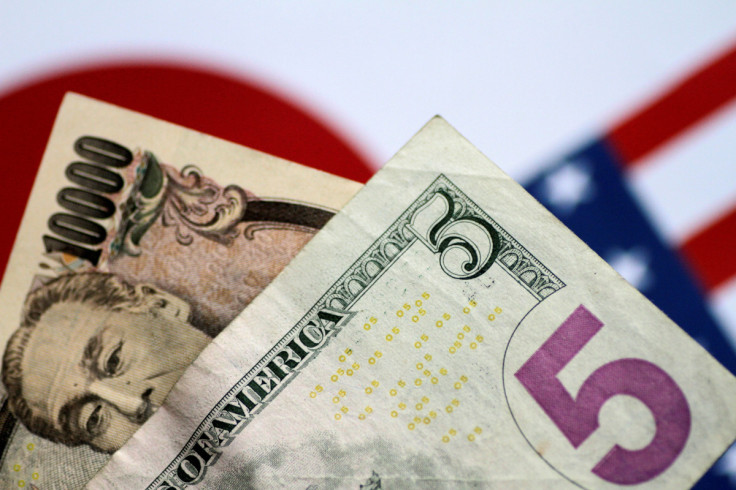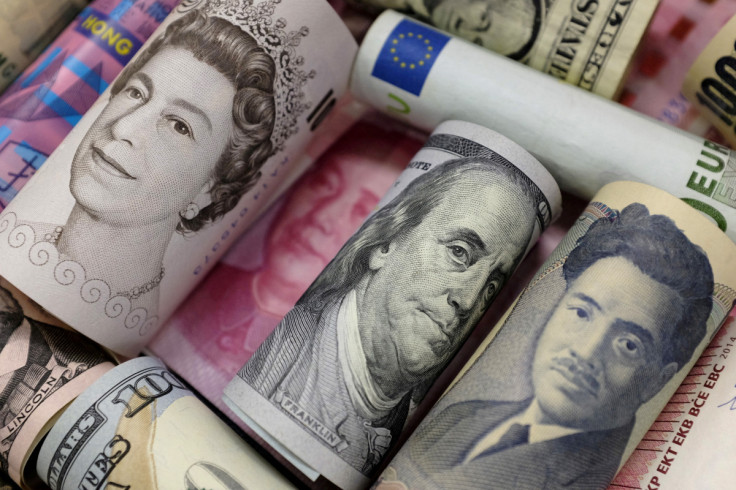Yen Weakens To New 24 Year Low; Sterling Cautiously Rebounds

The dollar scaled new 24-year highs versus the yen on Wednesday, holding above levels that prompted intervention by Japanese officials last month, while investors in sterling were left scratching their heads about the Bank of England's next steps.
The dollar rose 0.48% to as much as 146.6 yen, with a fifth straight session of steady gains taking it to levels not seen since August 1998.
Japanese authorities staged their first yen-buying intervention since 1998 on Sept. 22, when the dollar was at 145.90 yen.
Officials have reiterated they stand ready to take appropriate steps to counter excessive currency moves, though whether they wish to defend particular levels is less clear.
"Given the overriding strong dollar trend in place, it's possible that instead of defending the yen at a particular level, the Bank of Japan would try to slow down the pace of dollar-yen's rise by defending at a higher level" than previously, said Alvin Tan, head of Asia currency strategy at RBC Capital Markets.
The yen is particularly sensitive to the gap between U.S. and Japanese long-term government bond yields. The benchmark 10-year Treasury yield is trading not far from 14-year highs just below 4% while the equivalent Japanese yield is pinned near zero.
Yields outside Japan have been pushed higher by spillover from the turmoil in Britain's bond market.
Long-dated gilt yields jumped again, with the 20 year hitting a 14-year high a day after Bank of England (BoE) Governor Andrew Bailey reiterated that the central bank would end its emergency bond-buying programme on Friday, telling pension fund managers to finish rebalancing their positions by then.
Sterling fell to a two week low of $1.0925 after Bailey's remarks, reiterated by a bank spokesman on Wednesday morning, though the currency later rebounded to stand 0.9% higher at $1.1062.
However, the Financial Times reported that the BoE has signalled privately to lenders that it is prepared to prolong its bond purchases, and additional media reports suggested the government could U-turn on more elements of its recent "minibudget" that roiled the market.
Jordan Rochester, executive director FX Strategy at Nomura, said there was no clear reason to reduce sterling shorts given that "it's falling global growth that drives GBP anyway".
Data earlier in the session showed Britain's economy shrank by 0.3% in August, hit by weakness in manufacturing and maintenance work in North Sea oil and gas fields.
Elsewhere, the euro remained under pressure, but was flat on the day at $0.9709.
The risk-sensitive Australian dollar sank to a 2 1/2-year low of $0.62395, and bitcoin, which also typically moves in line with investors' attitude to risk was struggling around $19,000.

© Copyright Thomson Reuters 2025. All rights reserved.





















